Correspondence
By Flavia Dima and Pedro Segura
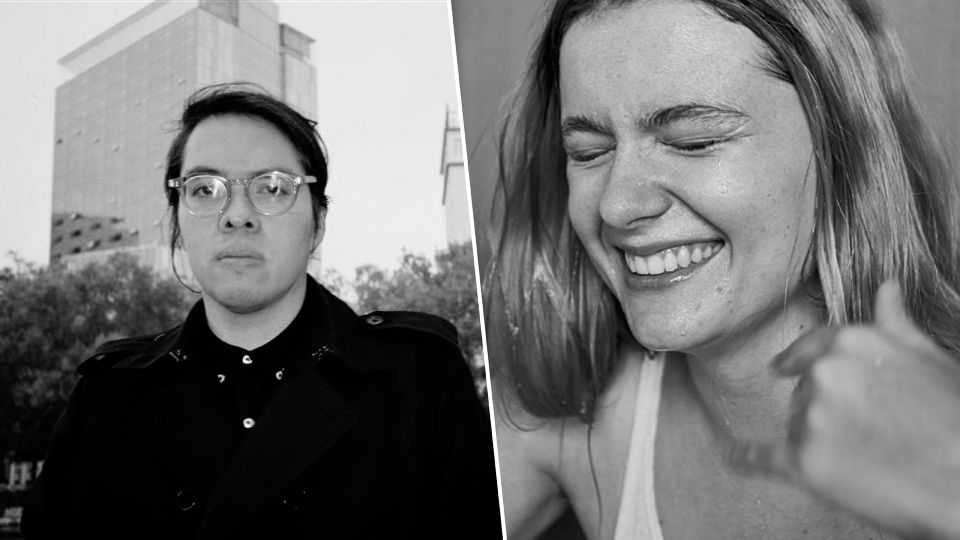

Flavia Dima is a film critic and programmer based in Bucharest, Romania. She collaborates with MUBI Notebook, Kinoscope, Films in Frame and Film Menu, and is an associate curator of BIEFF. She holds an MA in visual studies and is an alumnus of Berlinale Talents and Locarno Critics Academy.
Pedro Emilio Segura Bernal (Mexico, 1989) divides his time between the distribution of films (La Ola Cine), the film programming (Black Canvas) and writing about cinema. His texts have been published in Mubi Notebook, Film Comment, Cinema Scope and the editorial efforts of Viennale, Mar del Plata, Cineteca Nacional Mx, etc.
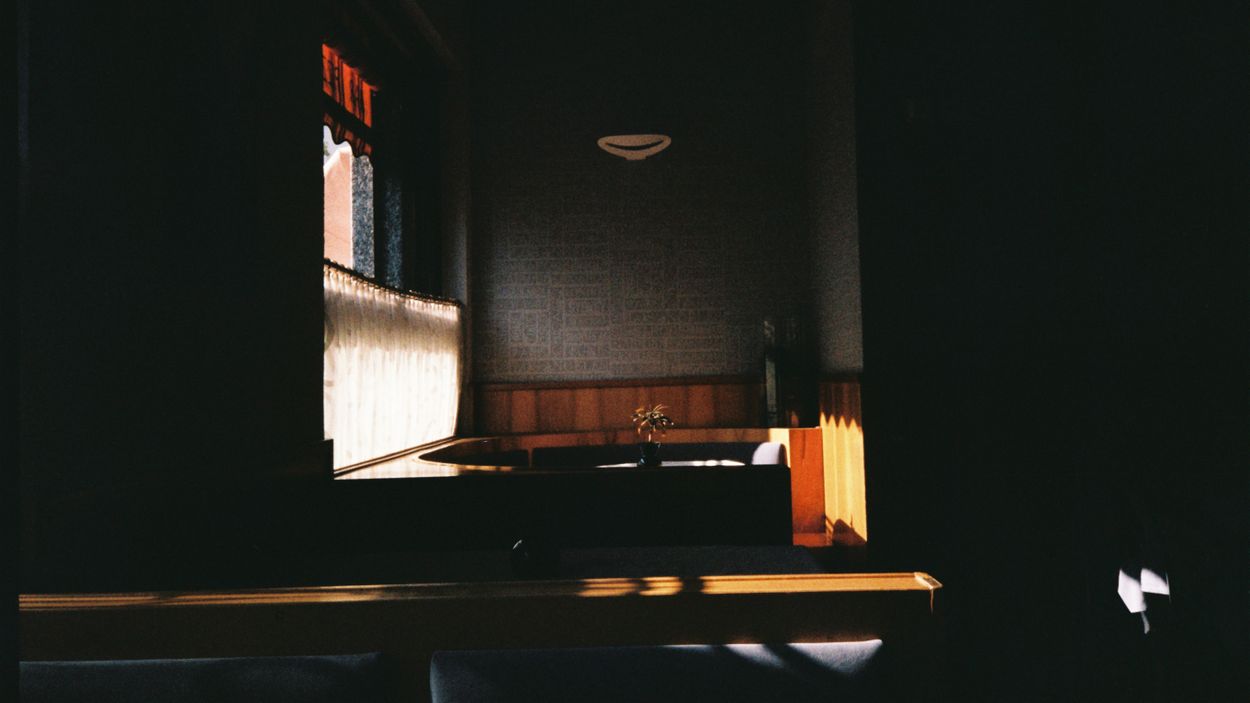
My dear Pedro,
Is it a cliché to wonder out loud where to begin at the start of such a text? (Yes, it probably is.)
I'm aware of the artifice of our endeavor (after all, we are its architects) — letters which we already know will be shared not just amongst us — yet I'm trying to work my way around it in a way that is at least partially sincere to the original meaning of a letter, its codes, and possibilities. If anything, wasn't the letter a material object that could later be found by people who weren't its intended recipients? Maybe this is why I proposed that what we will do together would be a series of possible texts — knowing, of course, that the result of this process is also a text in itself. But this is fundamentally a conditional text, in regards to all of its circumstances — the physical distance that lies between us, its final purpose as a piece to be published by the Locarno Festival, and even the certainty with which we may or will propose given ideas, thoughts, and affirmations.
But I think that, given that I wanted to discuss memories in this first letter, I think the concept of a hypothesis, of a possibility, reflects what has actually transpired in the meantime. After all, didn't almost all of my friends back home call me crazy for returning from the festival with a story about how I'd fallen hard for a man living quite literally on the other side of the world, that I was fantasizing of something impossible? And didn’t we become a couple precisely the next time we saw each other, in Vienna?
I find myself habitually crawling back into my memories of Locarno as if it were a womb — a space of open possibility, of infinite beginnings, of warmth and innocence, even if the years that followed were doubtless the most challenging of my life. But you originate from that safe place and have shined its light onto me ever since – your love a projector of images past, present, and future onto the screen of my own existence. Some images from Locarno: a white dress stained with coffee and red wine, a storm raining down on the terrace of the Kursaal, the sound of someone slapping away a mosquito in a tense and silent moment, the big cat we found next to Lago Maggiore and called ”El Gordito”, the pier in Ascona at night, the sun finally rising over the peaks of the Alps on our last morning. And what amazing films we had the chance to see, too – La Flor. The Grand Bizarre. Hotel by the River. Coincoin et les Z’inhumains. Veslemoy’s Song. Tarde para morir joven (Too Late to Die Young).
Coincidentally (at all levels), today I found solace in these words that Dominga Sotomayor says in her latest short film, Correspondencia, co-directed with Carla Simón, in such a radically different yet somehow intimately familiar context —
It’s strange to be so far away. It’s even stranger to talk about film.
Love,
Flavia

My dearest Flavia,
First of all, thank you so much for inviting me to be part of this editorial effort. I have to say that I have found it hard to write this short response. Even if it will not seem like it, I have been drafting and redrafting it. I know that it's not a monumental task but somehow I manage to turn it into climbing Everest during a harsh winter. The major complication, I found, is to share this precious memories with our hypothetical audience. Even if you only shared minor details, I was overwhelmed with shame and modesty until the point that I reached an envious state, a state in which I want to guard and treasure the events you mentioned and others just for myself. I guess that during the upcoming exchanges things will be raised by themselves, but if you consider it strange to talk about film, I found it stranger to talk about memories, mine or ours.
This leads me to another reflection. While concerned about this, I noticed how I'm constructing a character for this epistolary exchange. This was because I couldn't put aside your comment on the artifice of this text, a fiction that we are creating for the other(s). This reminded me of a James Benning intervention we witnessed at last year's Viennale, at a round table on film criticism. James said that he believed film criticism should adopt, or think of itself as a performance. But well, for James everything is a performance. And well, he is not so far from the truth.
The performative idea of film criticism, beyond the characteristic one that we all perform as humans, and in particular as professionals in the film industry, is more than interesting, I think, considering the physical and mental devotion of the artistic concept involved in it. I don’t find that daring nowadays. Am I wrong?
To end this intervention, I would like to share with you a postcard that Richard Bolisay, my Locarno roomie, gave me on my last day. On one side, there’s a picturesque image of the marvelous Piazza Grande. Maybe it’s just my interpretation, but in this one image, I can remember the vibrant essence of the place, full of memories from the history of cinema, even if there is no screen in it. The sole landscape, I believe, contains a cinematographic essence. It could even be a premise for a Benning film, even though, in my mind, it would be closer to a romantic version of a film based on Adachi's “Landscape Theory”, upon which Eric Baudelaire (who was selected for the Locarno 2020 special competition) has worked before.
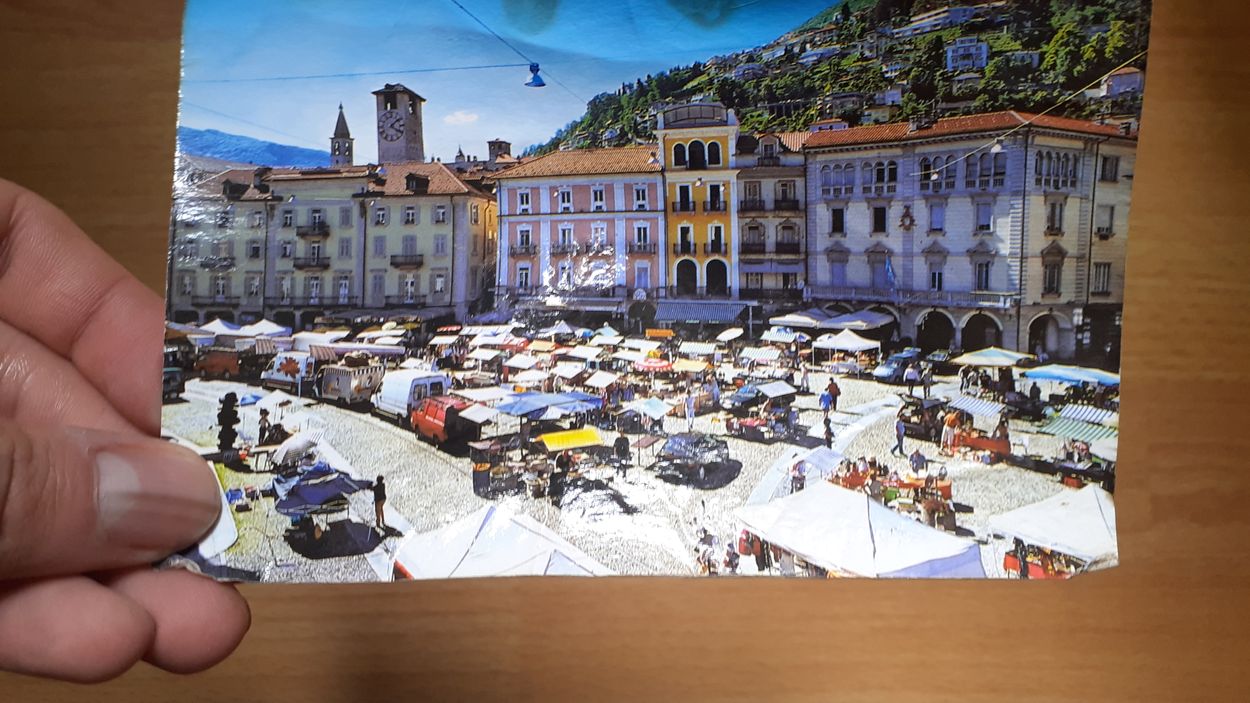
Returning to the postcard, on the other side of it, you find a blank space. Richard’s words have been erased by time. Still, I remember the touching essence of his words. I guess what this means is that even if memories are not actually inscribed, they're still there, intangible and thankfully eternal, existing in a way that means we can hold on to them. I just hope we and, well, all of us can witness together, again, Piazza Grande being full for a screening again anytime soon.
Tons of love,
Pedro
Dearest Pedro –
Waking up to this letter in the morning was so beautiful, and it stayed me throughout my entire day. I also received a postcard from Richard — mine has a drawing of the Madonna del Sasso church — and has almost faded in the meantime, too. (Richard, if you’re reading this, you either pulled a genius stunt, or need a new pen.) Some words I can still read from it, which are some of the most genuinely beautiful things someone has ever said to me: “You bring the sun with you.” I hope he’s (still) right about that.
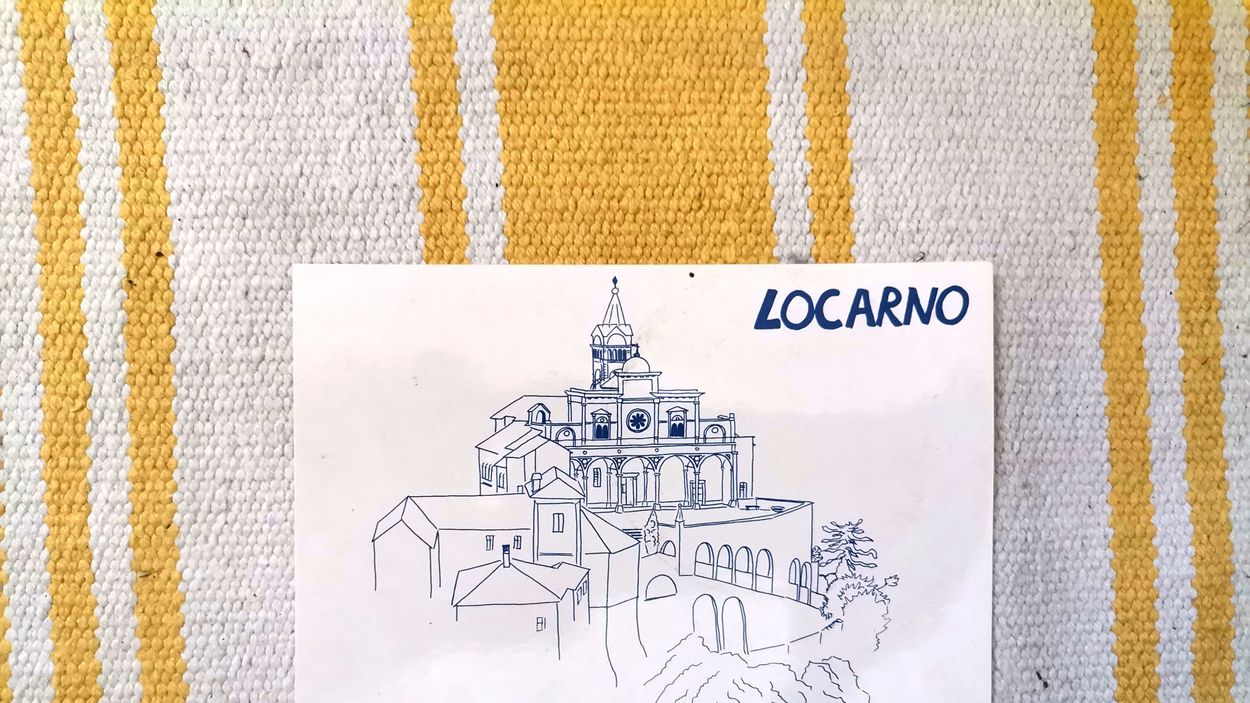
You say that you find it hard to discuss (personal) memories, but I think that memory is an operative concept for any film critic. And not just to flex around after screenings by showing your encyclopedic knowledge of cinema by casually belting out references. (Speaking of performative!) They’re operative in our work, the very starting point – our memory of what we have witnessed, which then is modulated by our prior knowledge, our backgrounds, our experiences. Whatever you may remember (certain shots, lines of dialogue, movements of the camera, cuts) but the very act of remembering is modulated by our own unique circumstances.
Speaking of Benning. You remember that I was completely blown away by the comment you cite and that it has stuck with me ever since. Your interpretation of it is as correct as can be – and my fear is that much of contemporary criticism is bound to accelerate these dynamics. The stereotypical posture of a critic (a mix between a dandy and a Cerberus) has all but faded away under the pressure of them being annexed, colonized by publicity and PR. And even if they’re not, they rarely avoid the pitfalls of sententiousness. I could never see myself confidently stating that film criticism is finished, that cinemas will vanish. Or that cinema has exhausted itself beyond recovery. But we’ve been surrounded by people emitting these thoughts as if they were incontestable truths in the past months – and few besides Olivier Assayas, in his address for Sabzian, have managed to avoid these traps while still addressing real concerns.
But, here I confess that I had a wholly different interpretation of Benning’s words. I took at their most literal meaning: I imagined film criticism as a dance. As a way of returning to the primary support of communication – the body itself, corporality. I can imagine myself dancing to express myself about so many films. An ample waltz dotted with dozens of pirouettes for Miguel Gomes’ As Mil e uma Noites (Arabian Nights). A performance which is based on repeated movement and exploration of the potential shape of the body for Laz Diaz’s Ang Hupa (The Halt). A flailing combination of jumps, lunges, spins and shakes typical of a teenage girl alone in her room, for much of Lucrecia Martel’s work, but especially for her first two films. And the list goes on.
Have I gone insane?
All my love,
Flavia
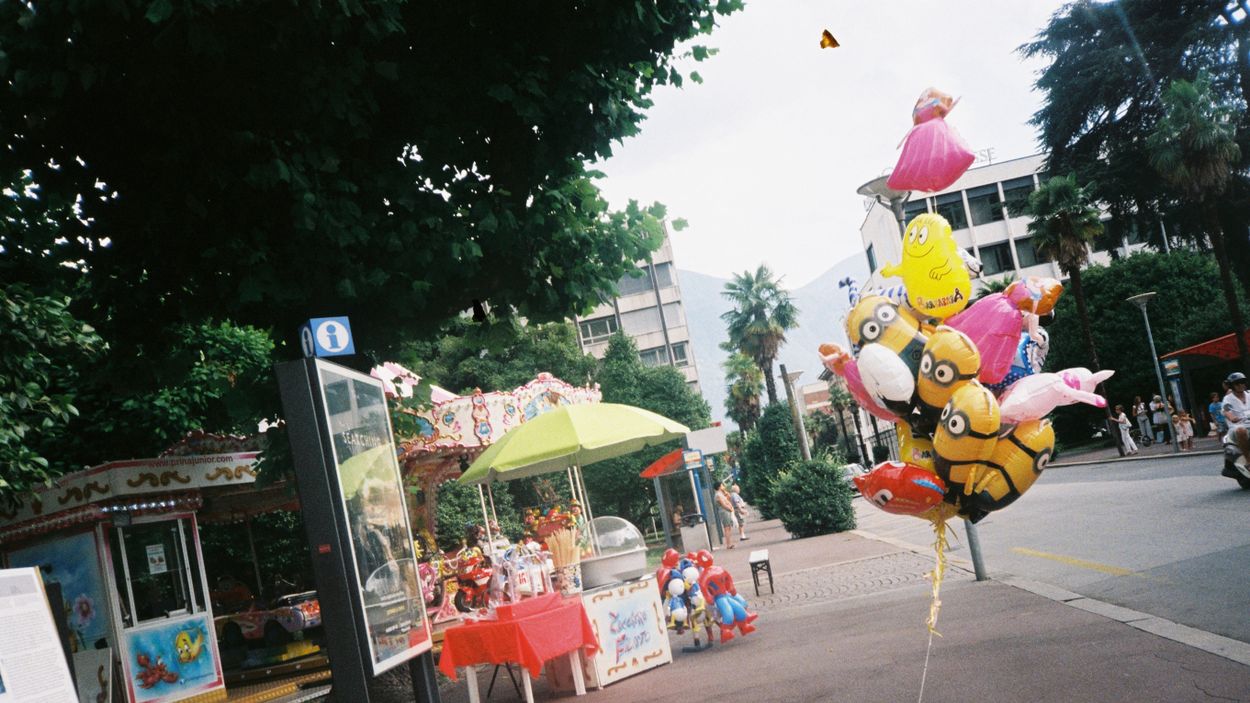
Dearest Flavia,
What a lovely image you depict with the (yes, crazy), suggestion of dancing. I'm intrigued to imagine how the choreography for Wang Bing’s Tie Xi Qu: West of Tracks , Lisandro Alonso’s La Libertad or Castaing-Taylor/Paravel Leviathan would look like. To close the part on performing, at least on my side, I once got the chance to interview Martel. I asked about her being a performer on Abramovich’s Años Luz, a question that made her visibly uncomfortable, just as the idea itself of being shot for a documentary was, but that led to her express an appraisal on the concept of artifice. The general idea was that when it collides with the "real", it causes something special to arise. I think something similar ought to apply to film criticism. The performance, whether it’s a dance or two people acting, writing letters to each other while they speak daily on other media, or the word, or the idea, the discussion, the thinking is made in order to collide images together, to make a spark appear, and then hopefully, ignite a fire.
Now that you talk about the memoir function that film criticism contains, is not a bad moment to mention that in a way, we are paying some kind of tribute to the epistolary exchange for which Jonathan Rosenbaum invited several renowned and now historical voices from film criticism to discuss the present and future of cinema. I guess the idea with this collection of texts is to achieve something similar. And in a way, the selection of “The Films After Tomorrow” worked the same way too: as a sample collection of the most daring and important voices of 21st century cinema intermingled with some emerging ones. But I have to confess that the selection prompts questions like, most obviously…: if these totemic monsters of art-house cinema face such huge problems in realizing their projects, what awaits all of the mortals trying to build their own cinematographic oeuvres? I must admit I'm kind of scared of the immediate future of cinema. I wouldn't like to think of a world in which a film like No Data Plan by Miko Revereza, cannot be made. What's in store for us in the upcoming 2, 3 years? VOD taking the world? I don't know and I'm aware there are so many important things at stake right now, but as a privileged cinephile, I just hope that in the upcoming years, all these scripts with stories of isolated couples end up as hypnotizing and liberating as Wittman's Drift...
I know, cinema is going to be fine. I would like to say goodbye with some of Nicole Brenez’s words from the Rosenbaum book. After telling a story of a man that was crying after a Serge Daney lecture, in which he claimed cinema was gonna die — unbelievable, Daney was such a good film critic that he made people cry, and even he fell into that cheap trick of killing cinema — Brenez tried to console the man with these words: “No, the cinema is not going to die, don't worry; if you create it, then, by definition, it does not die.” And yeah, filmmakers, Locarno, and us and the world... we have only one choice: to create, to mutate, to keep everything that's worthwhile alive.
Sending you kisses and love,
Pedro
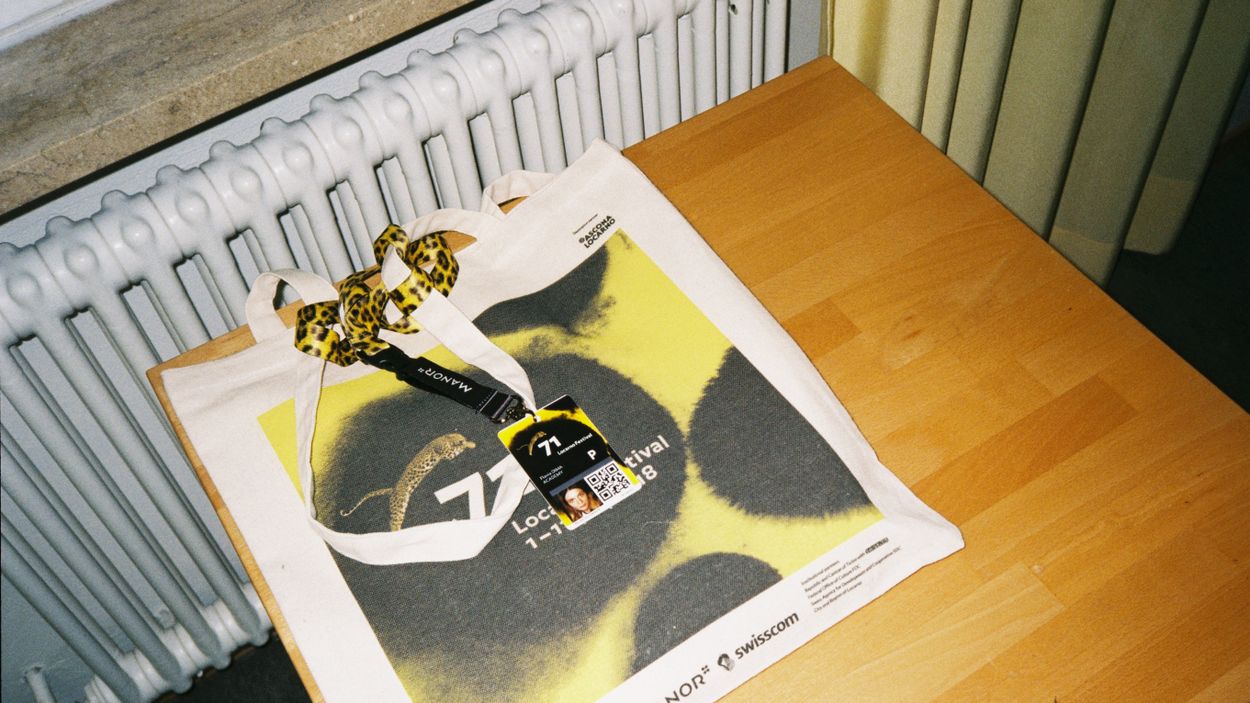
My dearest Pedro,
The summer days have become so calm and languorously Rohmerian since we started this correspondence. On such a pretty day we, in Romania, commemorate Roma Holocaust Remembrance Day – and thinking of it, I realized that even though cinema has always grappled with representing the “unrepresentable” (Resnais, Lanzmann), it has never approached the particular suffering endured by what is still the most maligned and discriminated ethnic group living in Europe, in conditions which should be morally repugnant and scandalizing for each and every one of us.
As you’ve guessed, I too share your conviction that cinema will be fine. Recently, an article popped onto my newsfeed that broke my contemplative state and annoyed me - because, in a sense, it proves some of the things we discussed earlier in our correspondence. It was an interview with a big-muscle “indie film” producer who was saying that “it’s very clear that independent cinema is over”. I couldn’t help myself and wrote the following: “Person seemingly not in touch with any young people declares independent cinema dead, part 7500. Cinema has survived worse moments in the history of mankind.” (Indeed, it has even flourished in their aftermath.) If these people think that what they’re making is an actually independent cinema, they’re at the very least delusional.
I’m not going to pretend that I’m saying something new. Stan Brakhage detailed a similar thought in a brilliant text I came across recently: “I really didn't understand the distinction between this ‘independent’ cinema and Hollywood (…) not content with having ripped off artistic and poetic and experimental and avant-garde and every other term they thought [of], they usurped ’independent’ which is about the last term we had.” And that’s precisely what the above producer is edifying, and by extension, all of the “critical” voices who are in fact annexed by the big-budget filmmaking “business”: for them, independent film is a question of finances, not one of content. Independent cinema, dare I say, will never, ever be over - and it will always find its means.
Which is to say, yes – some of the “totemic monsters” are in trouble right now, and they will continue to be. However, I think this is a unique moment for a radical (which I use here in the sense of root) action. Us “mere mortals” can (re)learn the unique lessons of Brakhage and his New American Cinema Group cohorts, which apply both to filmmaking, as well as to film-watching, film distribution and, hell, even film criticism. (What I do believe is that the biggest crisis we have to deal with right now is the crisis of cinephilia, in the senses in which Assayas outlines it - that it getting is increasingly further away from the center of contemporary debates, and its increasing ossification and self-isolation in institutions and lack of any major theoretical breakthrough in past decades is to blame.)
Just as you said: we must create, mutate, and keep everything that's worth alive – and I think we already have some of the blueprints. And so, I obstinately believe that things will be more than fine. We won’t be able to see this right away, of course, which rather puts the onus on patience rather than on expectation (oh, Lav!) – but haven’t we all become a bit more accustomed to waiting as of late?
Our performance (or, at least mine) is coming to an end. As with any admission of a fictional superstructure, in the end, one caves into its beckoning song and participates in it.
And so I leave to you the Grand Finale –
All my love –
Flavia
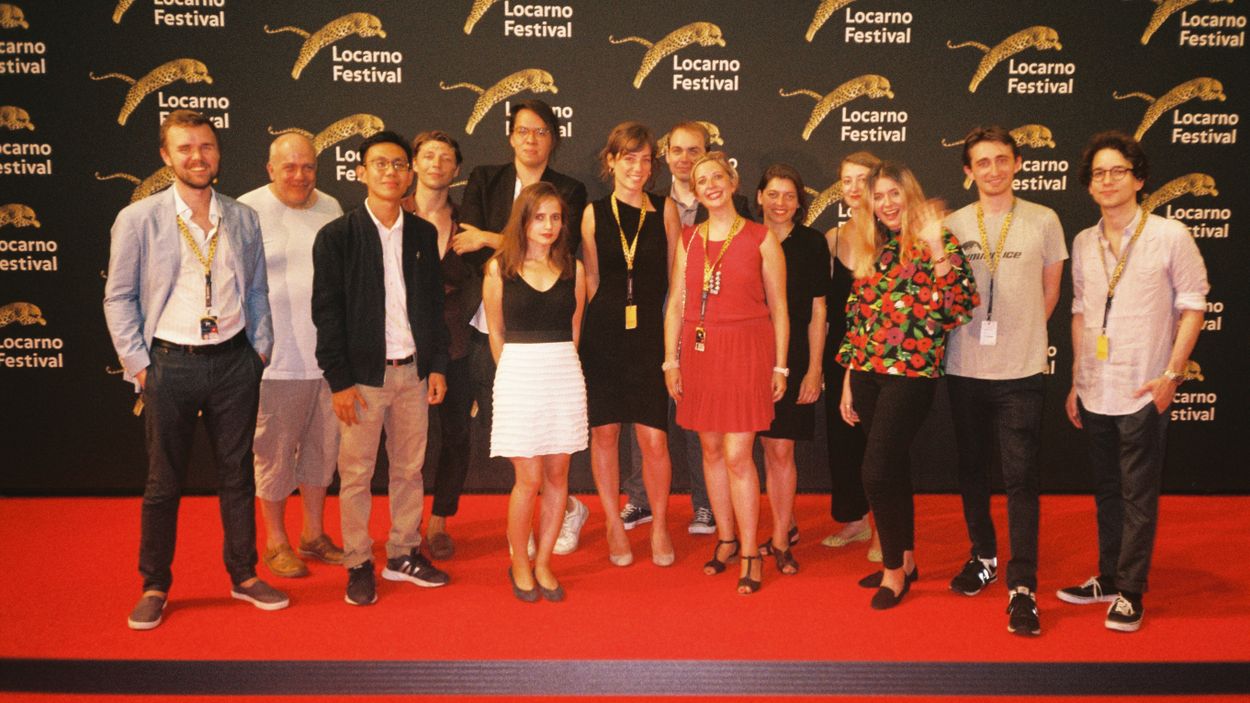
My dear,
Time just slips from my hands. At least I feel continuously passing from screen to screen. Working at 2am, rewatching a Lubitch to clear my mind, while I should be working on programming or on a transcript. It's like a sort of weird anarchy... I guess it’s the spirit of our times. We will have to live with this for a while.
I would like to close this correspondence by sharing with our hypothetical audience a short discussion that we had today. I know you wanted this last part to be about the future, but I feel the urge to go back to the past... You reminded me that, two years ago to the day, we had already met in Locarno. You evoked its paradisiac spirit. But in remembering it, it appears absolutely dreamy, idyllic. A distant oasis in which the major concern is to make a schedule to fit as many films and social interactions at Paravento as possible. I'm too negative. I have put a dark note on the conversation, reminding us we are stuck in a dreamy situation nowadays too, just that this one is more a Cronenbergian than a Rohmerian one.
And as we are stuck in a dream now, too... a Lynchian one, unfortunately, we have to find ways to get out. In our talk, the meditation was about how horrible mankind’s history has always been and how even with that, we need to go on. Now, writing this, I remember one meditation enunciated at Serge Bozon's Mrs. Hyde, co- written by Axelle Roppert, which idea is that the only thing that should be essential is to be happy. And well, let's say that should be our final reflection for these days.
How repetitive am I being? We should have taken advantage of this to discuss so many things, or maybe none... but well, let's close with another Locarno memory: The first film we all saw at that 2018 edition, the heartbreaking masterpiece from the great Leo McCarey, Make Way For Tomorrow. I remember that I alone, far from everyone, already knew that I was gonna cry like a starving baby. Clearly, I did it at least for one-third of the film. Non-stop. You know I cry easily at movies. I've never been so far from a cinema since the first time i went at the age of 3. I'm sure that when I return to a cinema, I'm gonna cry a river even if it's for fucking Tenet. God, I never thought I'd become that guy from Almodovar's Talk To Her. I'm so corny and sentimental. I feel so ashamed of myself with these frivolous ideas, just thinking about cinema when the world is falling to pieces. Anyway, coming back to McCarey, this was just a pretext to give a title to this... Cause we have to make way for tomorrow.
Looking forward to meet you again in the new order.
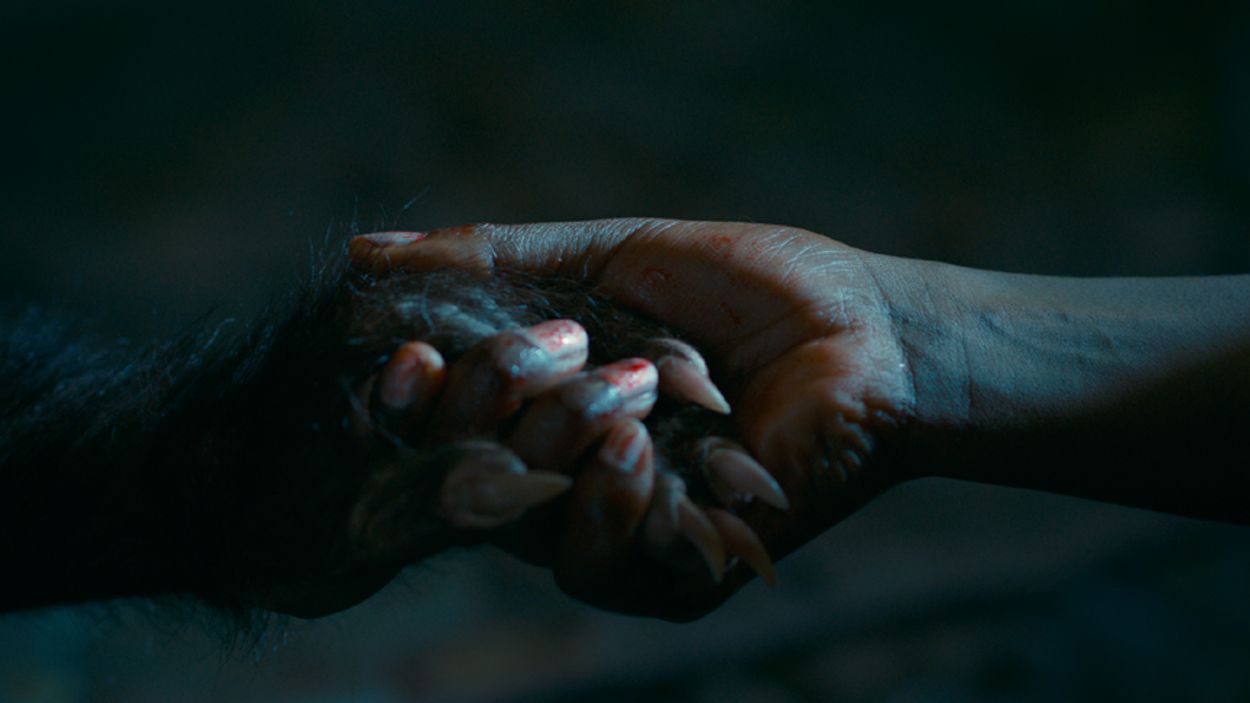
With love
Pedro